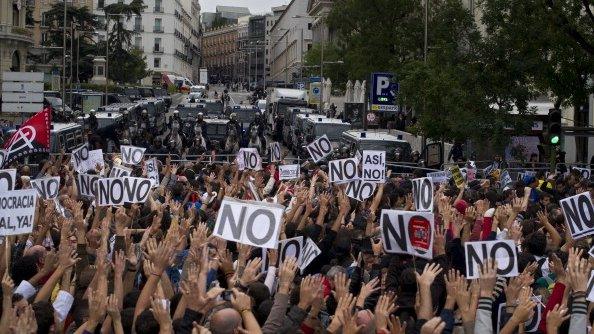Key players: Spanish ruling party 'slush fund'
- Published
Spain's ruling conservative party is alleged to have operated a slush fund from which Prime Minister Mariano Rajoy and others benefited.
Mr Rajoy and his Popular Party (PP) have denied any wrongdoing.
Here BBC News looks at key players in the affair.
Luis Barcenas, former PP treasurer
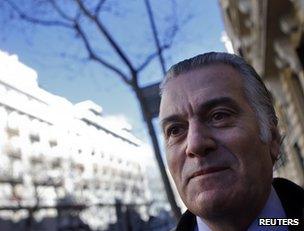
Served as party treasurer from 1990 to 2009. Between 1990 and 2004, the Popular Party dominated politics under Jose Maria Aznar, and Spain underwent a construction boom.
Mr Barcenas stepped down after being implicated in a separate case known as the Gurtel scandal, where he is accused of tax fraud and receiving illegal payments.
During the Gurtel investigation it emerged he had held bank accounts in Switzerland containing as much as 48m euros (£42m; $62m). The PP denied any link to the accounts.
When El Pais newspaper published handwritten ledgers attributed to him in January 2013, sparking the current scandal, he described the report as "false" but after another newspaper, El Mundo, published an original page from one of the ledgers, he admitted that the handwriting was his.
He now says he made numerous bonus payments - in cash - to Mr Rajoy and other senior party members, from a fund of donations from businesses.
Mr Rajoy and other PP members deny receiving illegal payments and accuse Mr Barcenas of trying to blackmail them.
He was placed in custody in June ahead of a trial for tax evasion. He denies wrongdoing.
Mariano Rajoy, prime minister
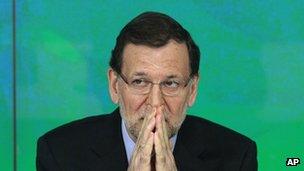
Regarded by EU leaders as a safe pair of hands for Spain as it struggles to revive its economy, the PP leader has refused to resign over the scandal.
A career politician, he was first elected in 1981, as a regional deputy, at the age of 26.
He joined Mr Aznar's conservative government in 1996, taking various posts before ending up as interior minister. Succeeding Mr Aznar as party leader, he led the Popular Party back into power in 2011, after failing at two previous attempts.
According to El Pais, Mr Rajoy received an annual sum of 25,200 euros (£22,000; $34,000) between 1997 and 2008 from the alleged slush fund. He denies receiving any secret payments.
El Mundo published friendly text messages apparently sent to Mr Barcenas by Mr Rajoy. One of the messages, dated 18 January 2013 - after the slush fund allegations first broke - says "Luis, I understand. Stay strong. I'll call you tomorrow. A hug."
Mr Rajoy has told parliament he made a mistake in trusting Mr Barcenas and promised clarifications about the scandal.
Maria Dolores de Cospedal, secretary-general of the Popular Party
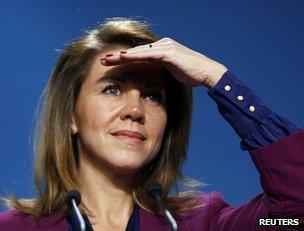
Perhaps the most prominent of the dozen or so other figures named in the ledgers, she is the party's deputy leader.
Achieved a breakthrough in regional elections in 2011, when she was elected president of the central Castile-La Mancha region - the first time the Popular Party gained control there.
When news of the ledgers broke, she told reporters all payments to party leaders had been clean and legal.
"We have only one set of books and they are clean," she said. "We have absolutely nothing to hide."
She has been summoned to appear before investigating judge Pablo Ruz on 14 August.
Pablo Ruz, investigating judge
Succeeded controversial investigating judge Baltasar Garzon at the high court in 2010.
Has been leading the Gurtel investigation into Mr Barcenas and is likely to lead the "slush fund" investigation, if anti-corruption prosecutors decide that one is warranted.
Judge Ruz has dealt with some of Spain's most notable recent international cases.
In 2012, he indicted seven former members of the Chilean secret police for their alleged role in the kidnapping and murder of a Spanish diplomat during Chile's military rule.
El Pais, centre-left daily newspaper
Broke the ledgers story on 31 January, splashing the headline "The secret papers of Barcenas".
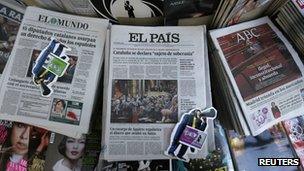
Its editor, Javier Moreno, has reportedly since handed the documents over to prosecutors.
As the traditional paper of the Spanish left, it is viewed with suspicion by the Popular Party.
The Barcenas scoop came days after an embarrassing blunder, when the paper published a fake photo of Venezuelan President Hugo Chavez in hospital.
El Mundo, centre-right daily newspaper
Reinforced the allegations in El Pais by publishing original ledger entries by Mr Barcenas, detailing secret payments.
El Mundo said the documents it had seen show that Mr Rajoy received payments in 1997, 1998 and 1999 when he was a minister in the Aznar government - payments that were undeclared and untaxed.
The paper also published the friendly text messages to Mr Barcenas from Mr Rajoy.
It is significant that even journalists in Spain's conservative press believe the scandal has damaged the image of the prime minister and his party.
- Published1 August 2013
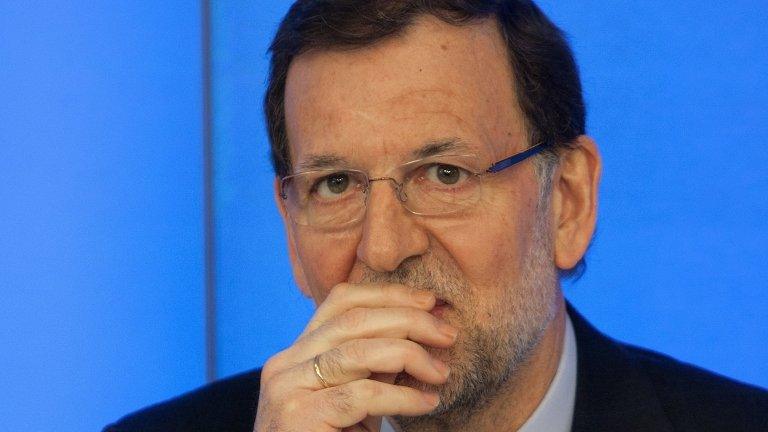
- Published6 February 2013
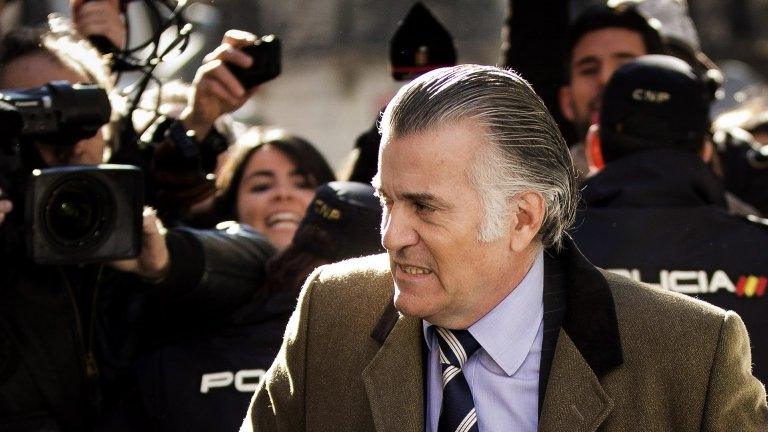
- Published4 February 2013
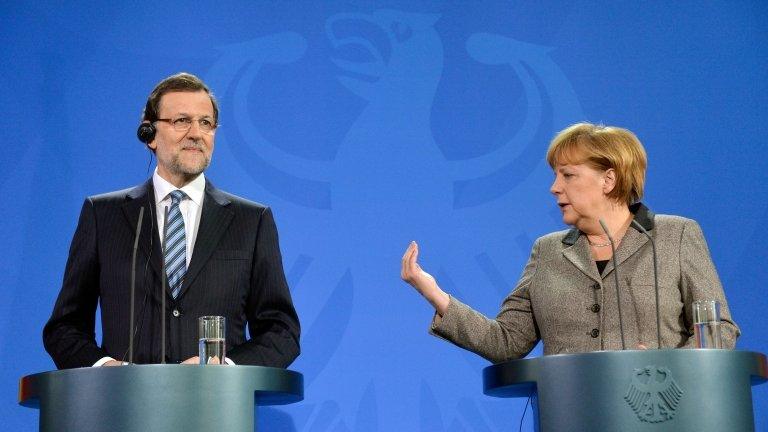
- Published1 June 2018
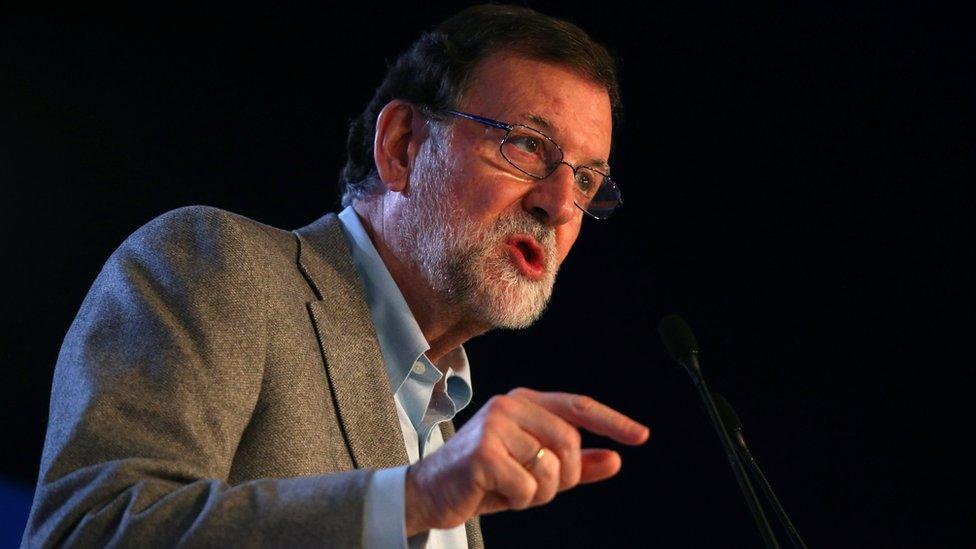
- Published30 January 2013
